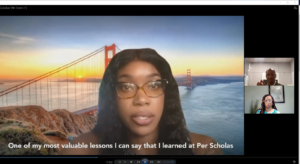
Diverse by Design 2020
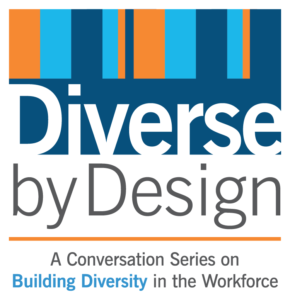
Since 2016, Diverse by Design brought together c-suite thought leaders to discuss best practices and solutions for businesses to attract, develop, and retain a more diverse and inclusive workforce. With the 2020 global pandemic putting a halt on all in-person gatherings, this year’s conference was reimagined as a virtual event.
This year’s event evolved into a three-part virtual conversation series hosted on October 2, 9, and 16, from 2 to 3 pm ET, pivoting away from previous years’ single-day, city-based proceedings.
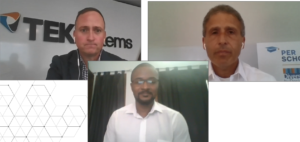
Panel 1: Designing People Solutions for the New Tech Marketplace
Our first session featured Per Scholas President and CEO Plinio Ayala alongside TEKsystems President Jay Alvather for a virtual fireside chat on the important role which private/nonprofit tech training partnerships have played in driving a more equitable and resilient workforce. Per Scholas Executive Vice President of Social Ventures Damien Howard moderated the conversation.
“I say often that our partnership with Per Scholas is an unquestionable win-win,” stated Jay. “Per Scholas’ mission aligns so well with our purpose at TEKsystems which is to create the most significant opportunities for our people and to achieve personal and professional growth.”
“Our partnership illustrates how you can develop high-quality tech talent from non-traditional sources and diverse backgrounds,” replied Plinio. To date, the TEKsystems and Per Scholas partnership has trained over
In response to concerns regarding post-pandemic recovery efforts, both Jay and Plinio agreed that the pandemic has amplified reliance on technology and the need for businesses to hire qualified tech talent.
“It’s critical to provide opportunities to individuals who otherwise might get lost in our economy. This type of corporate-nonprofit partnership can strengthen the economic base for the country and build a stronger post-pandemic recovery,” stated Plinio. For Jay, the tech talent pipeline isn’t growing fast enough organically to attract more talent into the field and should pursue more creative ways to do so. “I think the key is being able to bridge not only the diverse talent gap but also make the more streamlined, direct connection to those needed employment opportunities – providing not only skills but access.”
Check out the full-length session here.
Panel 2: Designing Philanthropy and Business Strategies for Deep Impact
Our second session considered how corporations can strategically leverage philanthropic resources, thought leadership, and employee engagement to scale business impact on the future of work. Panelists discussed strategies to align corporate philanthropy with business KPIs, employee engagement aligned with community work, as well as crafting executive thought leadership to elevate core themes of sustainability, equity, and impact.
Our distinguished panelists at this session were:
- Hardmon Williams, Vice President, AT&T Believes
- Monique Baptise, VP Global Philanthropy, JPMorgan
- Tan Moorthy, Executive Vice President, Head of U.S. Delivery Operations and Global Head of Education, Training & Assessment
This session was moderated by Sacha Thompson, Founder and CEO at The Equity Equation, LLC.
“[Adaptability], that is one of the biggest attributes an employee can have,” began Hardmon Williams, Vice President, AT&T Believes. AT&T recently profiled several Per Scholas graduates for their recent announcement to support online academies, including Per Scholas. (Click here to hear from Per Scholas New York alum, Shaniece Crumpler.) “Shaniece’s notion [on adaptability] is something that we embody from those who come through our pipeline.”
For Monique Baptise, VP Global Philanthropy, JPMorgan, it’s about taking intentional steps forward towards building opportunities for people of color in which corporations tap into their expertise in order to strengthen programs and opportunities to provide mentorship to those looking to get into the IT field. “How do we help communities recover in deep ways, find new options, and think innovatively about these strategies and change outcomes?”
The “learn while you earn” model is one approach that corporations can adopt to help provide opportunities to their employees. Tan Moorthy believes that employers who offer upskilling opportunities and training can play a pivotal role in helping to resolve education inequities in communities across the country.
Check out the full-length session here.
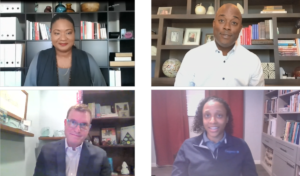
Panel 3: Designing Pathways for the New Worker
The third session examined internal business pathways designed for the “new worker.” In this case, new worker doesn’t refer necessarily to a younger worker, but to a worker trained to succeed in today’s high-tech environment. This means that today’s workers need to develop new skills or update old ones at every step of their career in order to keep their skills relevant.
Our distinguished panelists at this session were:
- Jason Oliver, Vice President, AT&T University Operations
- Janet Pope, North America Corporate Responsibility Director, Capgemini
- Guy Fruda, Managing Director, Deloitte
This discussion was moderated by Tia Buckham-White, Notre Internationale.
The conversation in this session was around such topics as a recent Deloitte executive survey that reported more than three-quarters of respondents intend to reskill employees this year, but less than half put systems in place to reward new skill development. These two findings are somewhat in conflict and demonstrate that not only does new tech skills training need to be made available to workers, but they also need to be incentivized to take the time out to enroll in this training and develop their skills.
Jason Oliver, VP of AT&T University Operations talked about AT&T’s commitment to skills-building and tech training programs such as Per Scholas that offer greater equity of access to opportunities for individuals in diverse communities, many of whom have historically been excluded from tech careers. During this portion, we watched a short video of a Per Scholas graduate who had attended a Per Scholas training course funded by AT&T grants.
Janet Pope, Director of CSR for North America at Capgemini spoke about some of the challenges people of color and women have experienced historically to overcome barriers to entry into the tech industry. She referenced the need for companies to consider alternative tech training paths, such as Per Scholas, in order to provide greater access to tech careers. This is important because options like Per Scholas are available to all interested individuals, are free of charge (tuition is paid for by corporate sponsors and funders), and intense boot-camp style courses take 12-15 weeks to complete, which means that there is an ongoing pool of graduates. But this means that many companies have to think differently, and not just look at 4-year colleges as a source for new hires. Janet also spoke about how a company’s corporate social responsibility role can influence greater inclusion and diversity in hiring practices.
Finally, Guy Fruda, Managing Director, Deloitte, talked about the rigor and long-term focus on building diversity into hiring that is required to overcome the current low level of representation among communities of color and women in tech. He emphasized that this takes senior management commitment and the building of a culture of diversity and inclusion. He also talked about creating an infrastructure of support, such as mentoring and career development to increase retention of talent from diverse backgrounds. He talked about this as a key strategic advantage that Deloitte has built and emphasized that companies with greater diversity are documented to be stronger in terms of overall performance, productivity, and employee morale.
Check out the full-length session here.
We truly enjoyed our third session and especially appreciated the rapport between our panelists. We thank all of our participants and moderators for this informative session.
Sign up for our Monthly Impact Report
More News
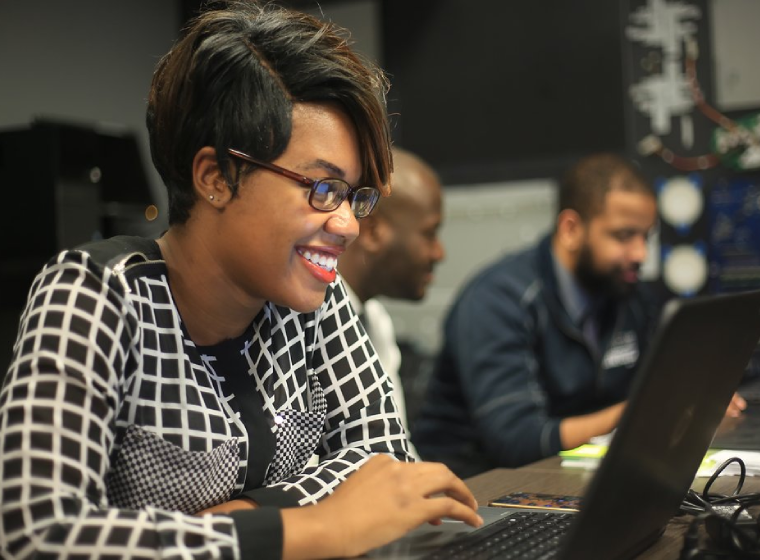
Donate Now
Your support makes a powerful difference in our ability to build a technology talent training solution that creates greater access and equity.

